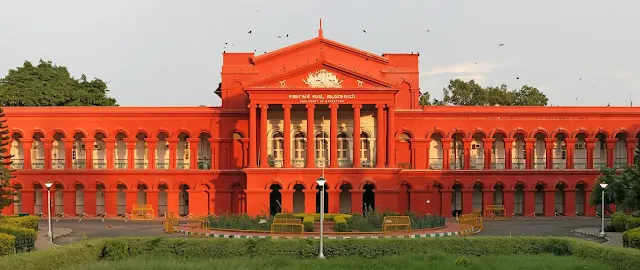Background of the Peripheral Ring Road-II Project
The PRR-II project is a critical infrastructure initiative designed to alleviate traffic congestion in Bengaluru by creating a bypass for vehicles, thereby reducing the load on existing city roads. The project involves the acquisition of substantial land parcels to construct a major arterial road spanning approximately 10.35 kilometers. As of recent reports, around 8.53 kilometers of the road have already been constructed, indicating significant progress in the project's execution.
Legal Challenges by Landowners
Several landowners whose properties were earmarked for acquisition filed petitions challenging the BDA's notifications. Their primary contentions included:
Delay in Proceedings: The landowners argued that despite the issuance of preliminary and final notifications in 2005 and 2011, respectively, no compensation awards had been passed even after a decade. They contended that this inordinate delay should render the acquisition proceedings void.
Non-possession of Land: It was asserted that since the BDA had not taken physical possession of the lands, the properties had not vested with the authority. This, they claimed, violated Section 36(3) of the BDA Act, which stipulates conditions for land vesting following acquisition.
Abandonment of Project: The petitioners alleged that the BDA had effectively abandoned the project concerning their lands, as evidenced by the lack of development or utilization over an extended period. They invoked Section 27 of the BDA Act, suggesting that the acquisition should lapse if the authority fails to implement the scheme within five years.
BDA's Defense
In response, the BDA presented several counterarguments:
Progress in Construction: The BDA highlighted that a significant portion of the PRR-II, approximately 80% of the project length, had already been constructed. This progress, they argued, demonstrated the ongoing nature of the project and negated claims of abandonment.
Issuance of Award Notices: The authority contended that award notices had been issued to several landowners, and possession mahazars (documents recording the taking of possession) had been prepared and handed over to the engineering section, indicating compliance with procedural requirements.
Statutory Provisions: The BDA referenced Section 69(2) of the Karnataka Town and Country Planning Act, 1961, asserting that for road construction projects, the proceedings do not lapse, thereby justifying the continuation of the acquisition process despite delays.
High Court's Analysis and Judgment
After reviewing the submissions, Justice E.S. Indiresh delivered the judgment, upholding the BDA's acquisition notifications. The court's rationale included:
Substantial Project Completion: The court noted that over 80% of the PRR-II had been completed, underscoring the project's significance in enhancing urban infrastructure and justifying the continuation of land acquisition to complete the remaining segments.
Public Interest Consideration: Emphasizing the project's importance for public safety and urban development, the court recognized the necessity of constructing service roads and metro stations, which require the disputed land parcels. The judgment highlighted the need to balance individual property rights with broader societal benefits.
Legality of Notifications: The court found that the BDA had adhered to the requisite legal procedures in issuing the preliminary and final notifications. The absence of a statutory time limit between these notifications, coupled with the project's ongoing nature, led the court to conclude that the acquisition process remained valid.
Implications of the Judgment
This ruling has several significant implications:
Precedent for Infrastructure Projects: The judgment sets a precedent affirming that substantial completion of a project can validate extended timelines in land acquisition processes, provided there is demonstrable progress and adherence to legal procedures.
Clarification on Land Acquisition Laws: The court's interpretation of Sections 36(3) and 27 of the BDA Act, along with Section 69(2) of the Karnataka Town and Country Planning Act, provides clarity on the applicability of these provisions in prolonged infrastructure projects.
Reinforcement of Public Interest Doctrine: The emphasis on public safety and urban development underscores the judiciary's recognition of the necessity to balance individual rights with collective societal benefits in matters of land acquisition.
Conclusion
The Karnataka High Court's decision to uphold the BDA's land acquisition for the Peripheral Ring Road-II project underscores the judiciary's support for critical infrastructure developments aimed at enhancing urban mobility and public safety. By balancing legal procedural adherence with the imperatives of public interest, the court has reinforced the legitimacy of the PRR-II project, paving the way for its completion and the anticipated alleviation of Bengaluru's traffic congestion challenges.










0 Comments
Thank you for your response. It will help us to improve in the future.